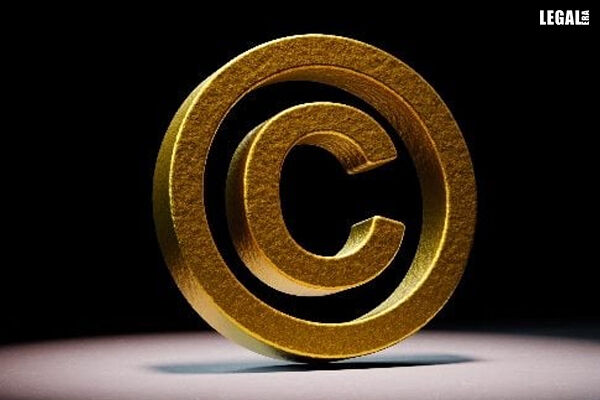
Federal Appeals Court’s Ruling on Register of Copyrights Sparks Government Rehearing Petition
“The Trump Administration challenges a federal appeals court ruling reinstating Register of Copyrights Shira Perlmutter, raising major separation of powers concerns”
In a developing constitutional dispute with broad implications for the separation of powers and the administration of federal copyright law, the Trump Administration has petitioned the U.S. Court of Appeals for the D.C. Circuit for a rehearing following a divided ruling that temporarily reinstated Shira Perlmutter as Register of Copyrights. The government’s filing characterizes the court’s decision as an “extraordinary step” that misinterprets both statutory and constitutional frameworks governing federal appointments.
The Removal and Reinstatement
On May 22, 2025, Perlmutter filed a legal complaint challenging her removal by former President Donald Trump, who had dismissed her just days after firing Librarian of Congress Carla Hayden. In her filing, Perlmutter asserted that the President’s actions were unlawful and in violation of constitutional principles, arguing that the Register of Copyrights is an officer of the legislative branch, and therefore beyond the President’s removal authority. The U.S. Court of Appeals for the D.C. Circuit, in a 2-1 ruling issued on September 10, 2025, sided with Perlmutter and granted her a preliminary injunction, thereby restoring her to her role pending further proceedings. The court emphasized that the district court failed to consider significant legal and constitutional factors, particularly the alleged violation of the separation of powers.
Key Findings of the D.C. Circuit Court
The appellate panel identified several factors that, in its view, were improperly omitted from the district court’s analysis:
1. Separation of Powers Violation: Perlmutter alleged that her removal stemmed from a disagreement over her recommendations to Congress regarding AI policy—raising an unprecedented separation of powers issue.
2. Legality of Removal: The court indicated the removal was likely unlawful, especially given Perlmutter’s position within the legislative branch.
3. Scope of Authority: Since Perlmutter “does not exercise substantial executive power,” her case deviates markedly from precedent concerning removal of executive officials, warranting a more nuanced legal analysis.
The court also noted that no official at the Library of Congress had recognized Todd Blanche—appointed by Trump as Acting Librarian of Congress—as a legitimate authority, reinforcing Perlmutter’s standing.
DOJ Petition for Rehearing
In response, the U.S. Department of Justice filed a petition for rehearing or rehearing en banc, forcefully challenging the appellate court’s conclusions. The government contended that the ruling is incompatible with the structure and function of the Copyright Office, arguing that the Register exercises quintessential executive powers, including regulatory interpretation and enforcement of the Copyright Act.
Legislative vs. Executive Classification
The DOJ’s petition criticized the court’s classification of the Register as a legislative officer, stating:
“Nor, for that matter, does the panel anywhere acknowledge the potentially momentous implications of its view that the entire federal copyright system is administered by an officer of the Legislative Branch.”
The government asserted that such a view is not only contrary to the statutory framework but also overlooks longstanding judicial precedent recognizing the executive functions of the Register.
Federal Vacancies Reform Act Dispute
The petition also contested the appellate court’s handling of the Federal Vacancies Reform Act. It argued that the Library of Congress qualifies as an “independent establishment” under the Executive Branch, thus making the President’s designation of Blanche as Acting Librarian lawful under 5 U.S.C. § 3345(a)(2). The government stated:
“The FVRA authorizes the President to appoint acting officials in an ‘Executive agency,’… all of which the library satisfies.”
Dissenting Opinion and Broader Implications
Judge Justin Walker dissented from the majority opinion, supporting the government’s view that the Library of Congress functions as part of the Executive Branch when acting as a copyright regulator. He cited recent D.C. Circuit precedent affirming the Library’s regulatory authority as a basis for his disagreement with the majority’s characterization of Perlmutter’s role. The dissent highlights a deeper constitutional tension: whether independent regulatory authority within agencies historically aligned with Congress should now be reclassified due to evolving functional responsibilities.
Institutional Self-Definition
The Library of Congress publicly identifies itself as “the main research arm of the U.S. Congress” and “an agency of the legislative branch of the U.S. government.” This institutional self-definition has served as a central pillar of Perlmutter’s argument, contrasting with the government’s functionalist perspective.
The Trump Administration’s petition for rehearing in the Perlmutter case underscores a high-stakes confrontation over the structure of administrative authority and the limits of presidential power. With the judiciary now asked to re-examine its earlier decision, the case could become a pivotal moment in defining the constitutional boundaries between legislative and executive control over federal regulatory offices—particularly in areas, like copyright, where legal authority and technological evolution intersect.
As the court weighs whether to grant a rehearing or convene an en banc panel, the final outcome may carry lasting implications not only for the status of the Register of Copyrights but also for the broader architecture of separation of powers in the modern administrative state.